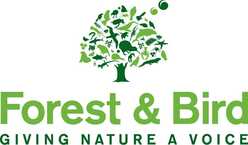Despite the wet weather and slippery conditions the programme for the 2017 Tikitapu Pest Control has proceeded as planned on 6th and 7th August, with the Pindone bait put out into the bait stations and the Feratox® (cyanide) strikers nailed to trees. Stations were topped up two weeks later and it is intended to clear the stations of any remaining bait on 1st and 2nd of October. We are extremely grateful to our volunteers who have attended working bees this year and delighted to welcome some new people to the team. Thank you all very much for your support.
At this stage we have found 33 possum and 1 wallaby carcass and expect to find more when the stations are cleared. The self setting traps have killed a further 42 possums. Monitoring will be repeated in November to see how successful the baiting and trapping has been in reducing rat and possum numbers. Although there should be no bait in the stations after mid October, the area must be treated with caution until the signs are removed, approximately mid February.
The pesticides used are effective and safe when properly handled. The use of bait stations and strikers allows for the pesticides to be made available to target pest species while at the same time restricting accessibility to native and non-target species. However, there is a risk of poisoning to humans and non-target animals such as dogs if the bait is handled carelessly or eaten. Poisoning can occur through eating baits or poisoned animals.
The risk to dogs remains until the carcasses have completely decomposed. Please remember that the area is a Scenic Reserve and therefore dogs are not allowed in the reserve at any time.
The presence of warning signs indicates that pesticide residues may still be present in baits or animals. The removal of signs will tell you that you can resume normal activities in the area. If in doubt, check with DOC.
What do I do if I suspect poisoning?
Always contact your local doctor, local hospital or the National Poisons Centre on 0800 764 766. These risks can be eliminated by following these simple rules:
I am always delighted to have new people to add to the volunteer list. The project relies on volunteers assisting in the field and it would be greatly appreciated to have some more local people involved. Please contact me if you would like more information or to be added to the volunteer list.
Frances Blakely [email protected] Phone: 362 8480
At this stage we have found 33 possum and 1 wallaby carcass and expect to find more when the stations are cleared. The self setting traps have killed a further 42 possums. Monitoring will be repeated in November to see how successful the baiting and trapping has been in reducing rat and possum numbers. Although there should be no bait in the stations after mid October, the area must be treated with caution until the signs are removed, approximately mid February.
The pesticides used are effective and safe when properly handled. The use of bait stations and strikers allows for the pesticides to be made available to target pest species while at the same time restricting accessibility to native and non-target species. However, there is a risk of poisoning to humans and non-target animals such as dogs if the bait is handled carelessly or eaten. Poisoning can occur through eating baits or poisoned animals.
The risk to dogs remains until the carcasses have completely decomposed. Please remember that the area is a Scenic Reserve and therefore dogs are not allowed in the reserve at any time.
The presence of warning signs indicates that pesticide residues may still be present in baits or animals. The removal of signs will tell you that you can resume normal activities in the area. If in doubt, check with DOC.
What do I do if I suspect poisoning?
Always contact your local doctor, local hospital or the National Poisons Centre on 0800 764 766. These risks can be eliminated by following these simple rules:
- DO NOT handle any bait
- DO NOT allow CHILDREN to wander unsupervised in the treatment area
- DO NOT bring DOGS into this area
- DO NOT take ANIMALS for eating
I am always delighted to have new people to add to the volunteer list. The project relies on volunteers assisting in the field and it would be greatly appreciated to have some more local people involved. Please contact me if you would like more information or to be added to the volunteer list.
Frances Blakely [email protected] Phone: 362 8480


 RSS Feed
RSS Feed
